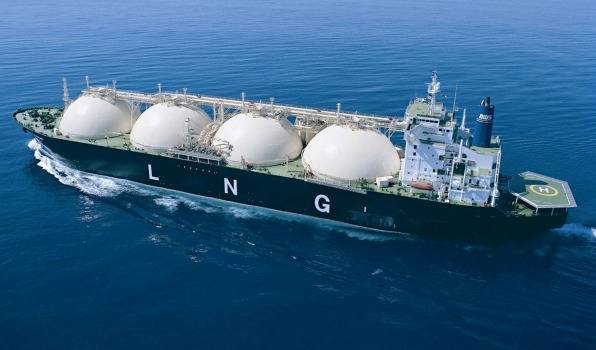Danish Zidi - Pakistan's agreement under government to government arrangements with Qatar for purchase of LNG has been subject to criticism. Pundits have been trying to create an impression of the deal with Qatar as 'expensive' purchase when compared to spot market prices.
The factual analysis of the data available however suggests a different story. The Sale-Purchase Agreement (SPA) with Qatar Gas, as this purchase agreement is known in the industry, has not only helped authorities to ensure domestic and industrial consumers with a consistent supply of gas but price comparison of SPA with recent spot purchases proves that Pakistan has been able to save up to $ 91.0 million (nearly Rs 10 billion) between the four month period from December to March, FY 2017-18.
The global LNG market is all about preferences and choices of LNG producers and traders. Experts also believe that LNG cargoes supplied on spot basis should not be compared with the cargoes bought under long term agreements. This is because of difference in market dynamics and factors that affect the prices like demand and supply situation, global weather, LNG plants maintenance, geopolitical situation, freight elements, port charges, country specific business conditions, payment terms and LNG volumes etcetera. Also, looking at seller and buyer preferences in global LNG market landscape, traders like spot supplies whereas producers continue to prefer long term contracts to supply LNG.
To negate the perception that price of LNG contract with Qatar Gas is higher than spot market, the correspondent looked at data available through Pakistan LNG Limited recently floated tenders seeking delivery during December 2017, January 2018, February 2018 and March 2018 under spot market rates and compared these spot LNG prices with long term Sale-Purchase Agreement with the Qatar Gas.
Tenders by PLL fetched bid prices ranging from 13.98% to 16.89% of Brent, which is higher than the prices agreed under the SPA with the Qatar Gas. The calculations prove that the average savings per LNG cargo imports during the month of December 2017 to Pakistan stand around US$ 2.30 million per cargo. For six cargos imported every month under PSO's arrangements with Qatar Gas, total savings for December only are approx $13.8 million.
Similarly, average savings per cargo during January 2018 are $ 5.7 million and for six cargos under PSO's arrangements with Qatar Gas, the savings amount to $34 million. Continuing with this, average savings per LNG cargo imports stands around $4.7 million for February 2018 while total savings for six cargoes in February amount to $28 million.
Only recently PLL's tender has received average savings per LNG cargo around $2.5 million for March 2018. Hence savings for six cargoes under PSO arrangements in March stand around $15 million.
The sum of savings during the period under consideration gives Pakistan a substantial saving of $91.0 million or approximately Rs 10.0 billion at current USD to PKR exchange rate.
A debate has been going on with respect to Pakistan's agreement with Qatar with major argument that Pakistan should not have entered into the agreement rather should import LNG from spot market terming it cheaper than the price agreed with Qatar Gas in Long Term Sales Purchase Agreement. Had the agreement with Qatar not in place LNG imports could have been subject to price fluctuations and expensive causing a substantial dent to precious foreign reserves.
It is also a fact that countries have generally initiated LNG imports with long term contracts and then built on the experience to buy on spot and short term. Pakistan has similarly experienced buying cargoes on monthly basis by adhering to PPRA rules and it saw significant price fluctuations including a period where bidders did not bid, means leaving the country exposed to terminal charges including uncertainty in supplies to power producers who use LNG to produce electricity.
The effort was then diverted to 5-year contracts and based on the success in placement of Pakistan on the LNG world map, the number of bidders significantly increased and the results were visible in the two contracts awarded for the second terminal.
It can be concluded therefore that based on available data the LNG venture with Qatar has proven successful for Pakistan that once used to be an energy starved but now an energy surplus nation. It is easy to forget what situation could have been, had the LNG not been introduced in the energy mix of Pakistan.






